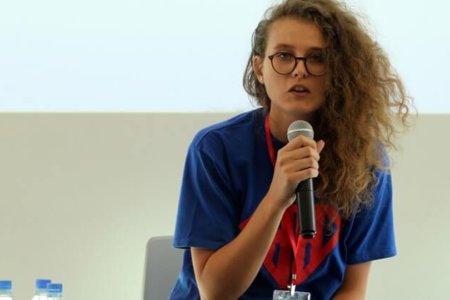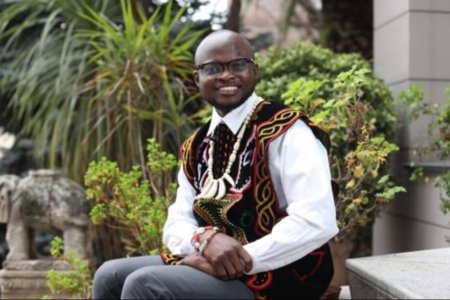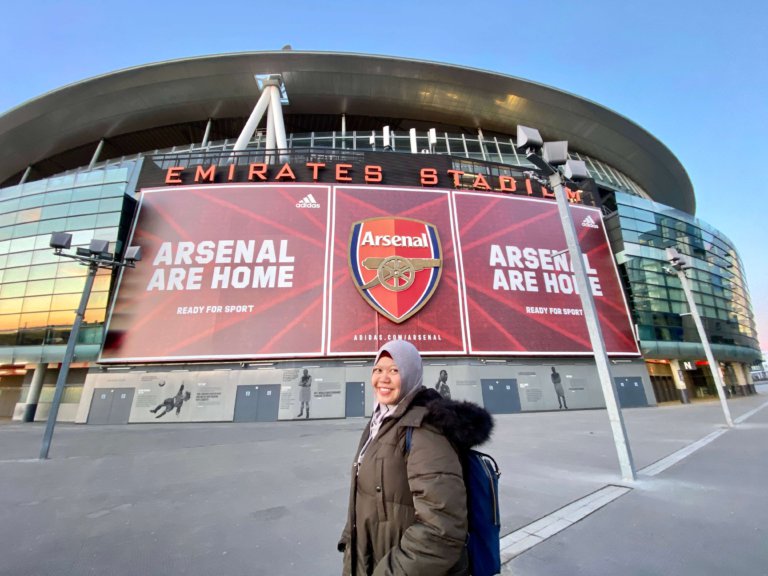
An illustrious career in broadcast and media. That’s what 41-year-old Lynn Zulkarim from Malaysia has had. From working at an award-winning studio to the number one radio network in the country, her experience was a colourful one.
In 2007, the University of Westminster was on her list of unis to go to under a Chevening scholarship. However, she didn’t get a callback and thought her boat had sailed because scholarships had an expiration date.
She gave no further thought on the matter and moved on. Then by chance in 2019, the British High Commission in Malaysia gave a talk at her office about Chevening which got her all revved up to apply again — more so this time because they removed the age limit.
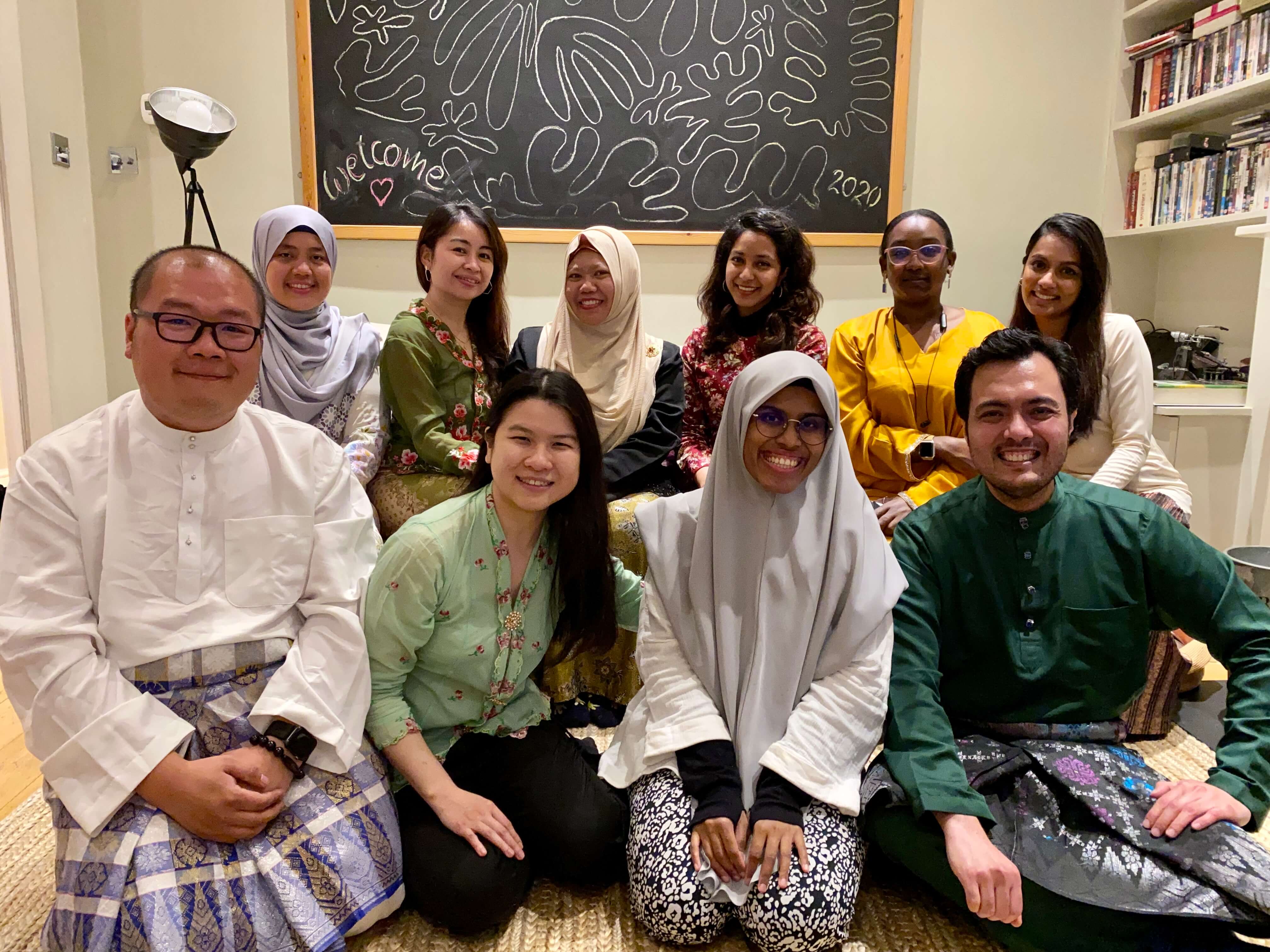
“Once I set my mind to apply for the scholarship, I immediately scoured through websites for unis in the UK,” she says. Source: Lynn Zulkarim
Despite having to conduct her interview online because of COVID-19, she nailed it and won. Now, armed with an MA in Media, Campaigning & Social Change, she shares with us her experience at the University of Westminster and her application process.
Walk us through your diverse career path and educational journey.
I graduated from Multimedia University and started working part-time at KRU Music Group (now known as KRU Studios) to manage their website and fan club. I’ve been a fan of KRU since my teen years in the 90s so it was exciting to work there.
It was then a natural progression as I moved to be a digital content producer for the most prominent English-speaking radio station in the country — Astro Radio. I love music, radio and the entertainment industry.
As I got older, I moved to the corporate world and used my experience in media and broadcasting to establish networks with a more diverse group. I worked on advocacy and outreach efforts and eventually, moved to corporate communications.
What made you want to study at the University of Westminster under the Chevening Scholarship?
I’ve always wanted to be a Chevening scholar when I first heard about it in 2007 since I have friends who are Chevening alumni. I feel that it’s a prestigious programme with a strong global network.
My application process began in 2019 before the pandemic and I chose the University of Westminster because they have a very niche course relevant to my work at the time. Also, the modules were very interesting.
I won it in 2020 and flew to the UK in the midst of a national lockdown. While my campus and graduate school experience weren’t as I expected, it was still interesting.

“The easiest is finding courses you like. The fun part is researching unis that offer courses on the subject matter your want to pursue,” she says. Source: Lynn Zulkarim
Can you tell us about the Chevening application process?
Once I set my mind to apply for the scholarship, I immediately scoured through websites for unis in the UK. I approached my superiors at work and asked them to be my references for the scholarship and uni applications.
They were more than happy to help. I worked on my essays for months, tweaking and perfecting them and only sent it a few days before the deadline. In early 2020, I received an email that I progressed and was shortlisted for an interview.
I booked my slot for April and immediately started preparing myself by writing my own Q&A and practising in front of the mirror. After my virtual interview, there’s not much left to do except to wait patiently.
Months later, the anticipation grew stronger as you hear people from all over the world beginning to get their acceptance (or rejection) emails. By late June, all the Malaysian Chevening scholars got their emails and our lives changed from then on.
What was the hardest and easiest part of it?
The easiest is finding courses you like. The fun part is researching unis that offer courses on the subject matter your want to pursue.
Apart from looking at modules, you need to take into consideration the area you plan to study in and if they have cool societies, restaurants, etc. One of the unis I applied for had a Harry Potter Club!
Malaysia went into the first lockdown when I was supposed to have my face-to-face interview. I was worried but I managed to take advantage of the situation by doing it from the comfort of my own home.
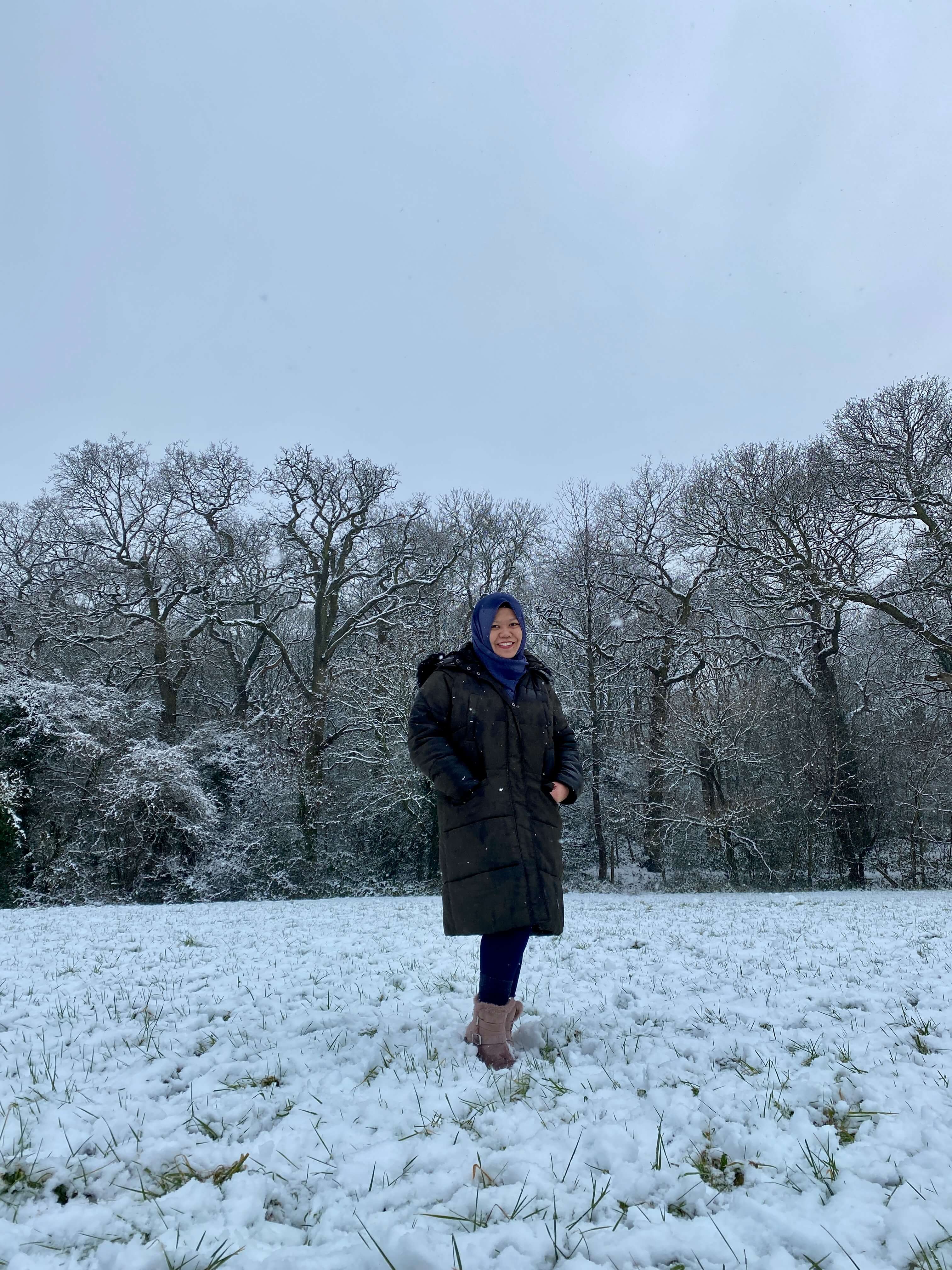
“Applying for a global scholarship such as the Chevening one is a very long process. It’s also very competitive so you need a lot of patience as it’ll be rewarding in the end,” she says. Source: Lynn Zulkarim
Applying for a global scholarship such as the Chevening one is a very long process. It’s also very competitive so you need a lot of patience as it’ll be rewarding in the end.
What advice do you have for other future applicants for the Chevening Scholarship?
Many people are intimidated by the essays, especially the ones on networking and leadership. Don’t worry if you never connected with political leaders or held a managerial post.
What Chevening is really looking for is how you maintain and use your networking skills to your advantage. They also look for how you show your influence and leadership in your work or within your community.
Make sure you keep to the 500-word limit. When you’re shortlisted for an interview, re-read your essays as the questions will be based on what you wrote.
You can find expected questions online to get a feel of what they’ll ask. The main thing is to practice, maybe engage with a previous scholar and have mock interview runs with them.
What were your most outstanding classes at the University of Westminster?
One of my optional modules in the first semester at the University of Westminster was Journalism Practice and Inclusive Society. It was a very interesting class and I had a great course leader.
He encouraged us to write essays on topics close to our hearts and frequently scheduled one-on-one sessions to discuss. On a personal level, that kind of communication and connection as we were going into a winter lockdown was something I appreciated.
Media, Activism and Politics is a core module in the second semester and I enjoyed the topics discussed as we could easily relate them to real-life happenings. Each of us had to write a weekly reflective blog post on the week’s topic.
I always made a conscious effort to write about Malaysia as much as I could so I could bring a Global South perspective to my course leaders and classmates.
Do you wish there was something you studied more of?
Not so much on the content per se, but more on the limitations due to the lockdowns. All of my classes were done virtually so our seminars and discussions were online.
There will always be someone (or more) who would not talk or turn their cameras on. That can get pretty frustrating because navigating through a group assignment is challenging when you have to do it virtually.
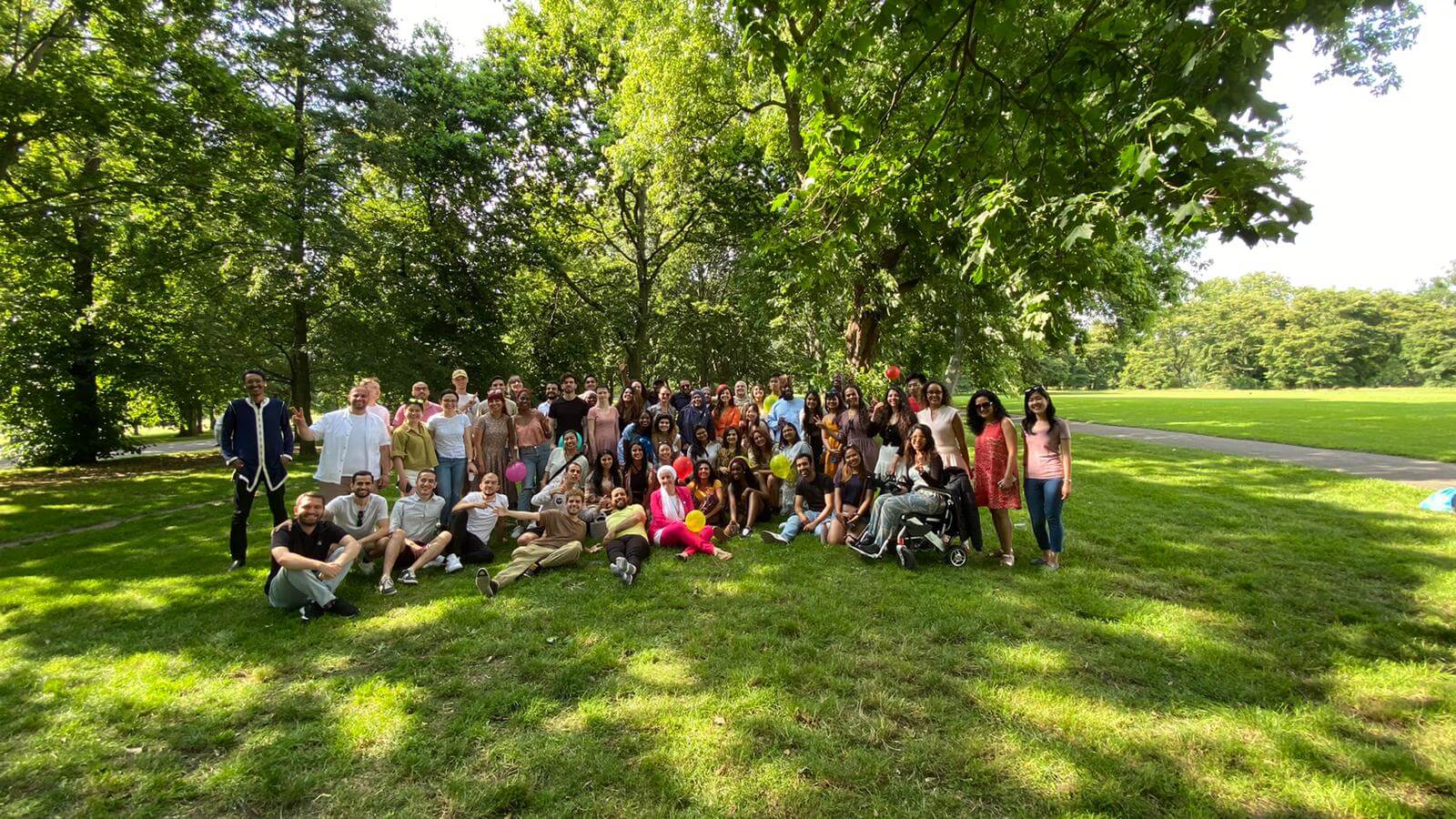
“What Chevening is really looking for is how you maintain and use your networking skills to your advantage. They also look for how you show your influence and leadership in your work or within your community,” she tells us. Source: Lynn Zulkarim
Also, I felt sad I missed out on on-site visits to museums or NGO offices (which they would usually do as part of the course) that would have enriched my learning experience.
If you could go back in time for a one-on-one mentoring session with yourself, what would your advice be and why?
You chart your own career progression. Start networking, make friends and maintain connections. Always treat any job as a learning experience whether it’s professional or personal.
Furthermore, you might have imposter’s syndrome but do acknowledge the good work you’ve done and your achievement over the years.
How did you spend your first paycheck?
I was 22 at the time and I bought myself a denim purse (as denim accessories were the trend) and I still have it even though I don’t use it anymore.
What matters more to you: work satisfaction, salary, social life, or a work/life balance?
As I get older, I tend to value work/life balance and job satisfaction even more than how much I make. Having experienced the conditions of working from home during lockdowns where lines are blurred between work and personal life.
Seeing how people in the UK respect working hours and annual leaves, I truly like the idea of working hard all week and having the time during weekends to recharge or have personal time with family and friends.
Lastly, what tips to budget finances do you have for students abroad?
For students in London, there are many ways to save money. First, it would be to register for the Student Oyster Card so you can get a 30% discount for all modes of transport which includes the London Underground, bus and other public transport.
Cooking is way cheaper than eating out and groceries are quite cheap in the UK. Among the cheapest are Lidl, Aldi, Asda and Tesco. Sign up for student discounts on platforms like UniDays to save money on shopping, leisure and entertainment.
Always look out for student discount stickers at shops and cafes because they can be around 10 to 20% and if you don’t see any, it doesn’t hurt to ask! A lot of things in the UK can be enjoyed for free. You can visit parks, museums and street entertainment so go out and explore.









